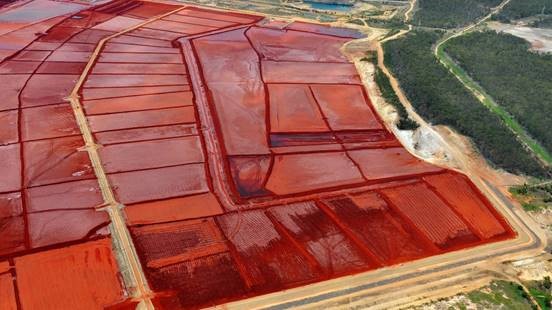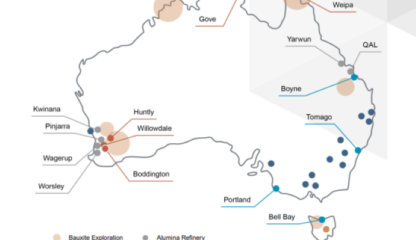
Our Australian alumina refineries are part of a potentially game-changing research partnership looking at technologies that could turn bauxite residue, or “red mud”, into soil capable of growing plants.
Red mud is a major waste product generated during alumina refining. If successful, the research could help transform the way alumina refineries rehabilitate red mud dams.
Worldwide, there are currently hundreds of millions of tonnes of red mud, with significant rehabilitation work required to return the land to a natural ecosystem once refining operations cease.
Through a joint Rio Tinto and Queensland Alumina Limited (QAL)-funded partnership, the University of Queensland’s (UQ) Sustainable Minerals Institute (SMI) is trialling a new process that uses eco-engineering technology to alter the minerals in the red mud into a soil-like material suitable for plant growth.
Led by UQ SMI Professor Longbin Huang, the research team works closely with our QAL and Yarwun refineries in Gladstone and Gove in the Northern Territory. Field trials have shown promising findings to date.
“If these technologies prove successful, it could transform the way refineries manage red mud dams by turning them back into usable land, significantly improving the economic and ecological sustainability of the aluminium industry,” Professor Longbin said.
Trent Scherer environment manager QAL said the research has the potential to help with the refinery’s long-term business plans.
“This is an absolute game-changer for the industry. We’re about halfway through the three-year trial, and we’re investing A$2 million into it,” he said.
“We plan on running this refinery for another 50 years or more. This gives us the opportunity to grow plants that are in the surrounding environment so it’s a much better environmental outcome.”
An award-winning partnership
The Rio Tinto, QAL and UQ partnership won the “Achieving Resilient Environments and Livelihoods” Award at the 2019 UQ Partners in Research Excellence Awards, held in Brisbane in September 2019. The award recognises both the quality of the research and the strength of the partnership.
The collaboration began during planning for the 2017 closure of Rio Tinto’s Gove alumina refinery, with a shared focus on changing future rehabilitation practices to benefit the natural environment and reduce associated costs.
“It is fantastic to have our partnership with Rio Tinto and QAL recognised at these awards,” Professor Longbin said.
The UQ Partners in Research Excellence Awards recognises outstanding industry-UQ collaborations that have benefitted industry and the community.
Using virtual reality (VR) to show local community and Traditional Owners how Amrun would look once project infrastructure was finished.


